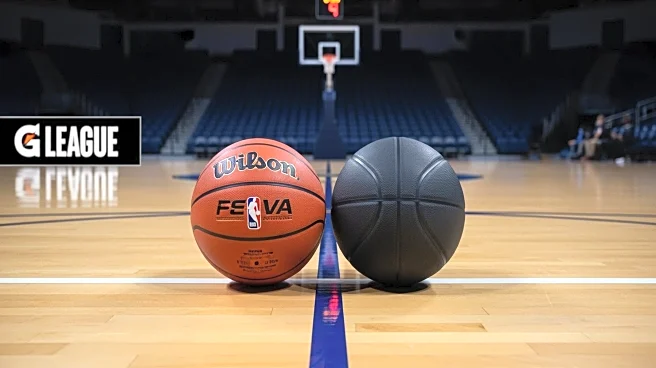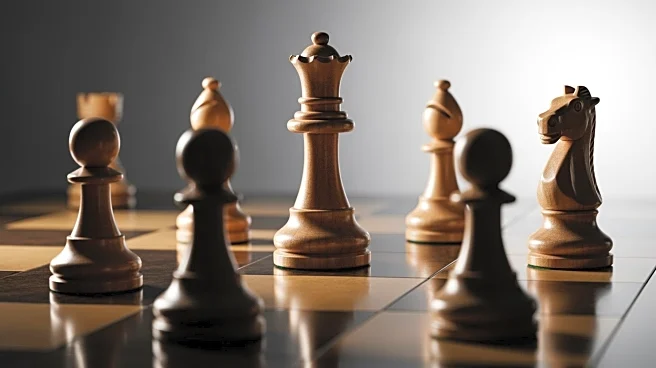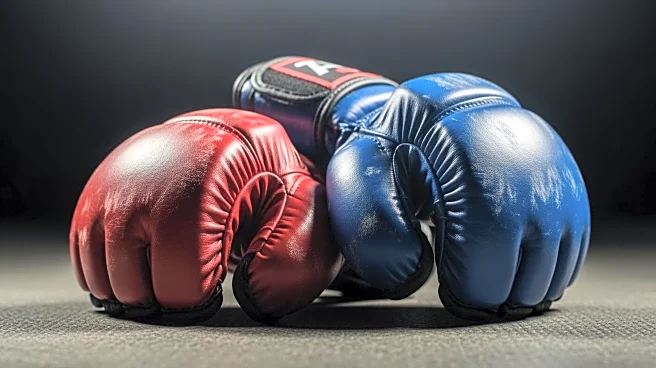What's Happening?
London Johnson, a former G League Ignite player, has committed to the University of Louisville, marking a significant shift in NCAA policy regarding player eligibility. Johnson, who initially bypassed
college to join the G League, will now join Louisville with two years of eligibility. This move is part of a broader trend where the NCAA is redefining amateurism, allowing players with professional experience in leagues like the G League to participate in college basketball. This change follows similar cases, such as Thierry Darlan's commitment to Santa Clara, and reflects the NCAA's evolving stance on what constitutes amateur status.
Why It's Important?
The NCAA's decision to allow players with professional experience to join college teams could significantly alter the landscape of college basketball. This policy shift may attract more talented players who previously opted for professional leagues due to financial incentives. With the introduction of Name, Image, and Likeness (NIL) deals, college basketball now offers competitive financial opportunities, potentially rivaling those in professional leagues outside the NBA. This could lead to an influx of international players and those with prior professional experience, enhancing the talent pool and competitiveness of college basketball.
What's Next?
As the NCAA continues to adapt its policies, more players with professional backgrounds may seek college opportunities, potentially leading to further changes in recruitment strategies and team compositions. The NCAA's evolving definition of amateurism could face scrutiny and debate, particularly regarding fairness and the balance between education and athletics. Stakeholders, including college coaches, athletic directors, and policymakers, will likely monitor these developments closely to assess their impact on the integrity and future of college sports.
Beyond the Headlines
This shift in NCAA policy raises questions about the traditional concept of amateurism in college sports. The blending of professional and amateur experiences challenges the historical separation between college and professional athletics. This could lead to broader discussions about the role of college sports in education and the ethical implications of monetizing student-athletes' talents. The long-term effects on player development, college sports culture, and the NCAA's regulatory framework remain to be seen.










